This site uses affiliates. Thank you for buying through our links and supporting this blog.
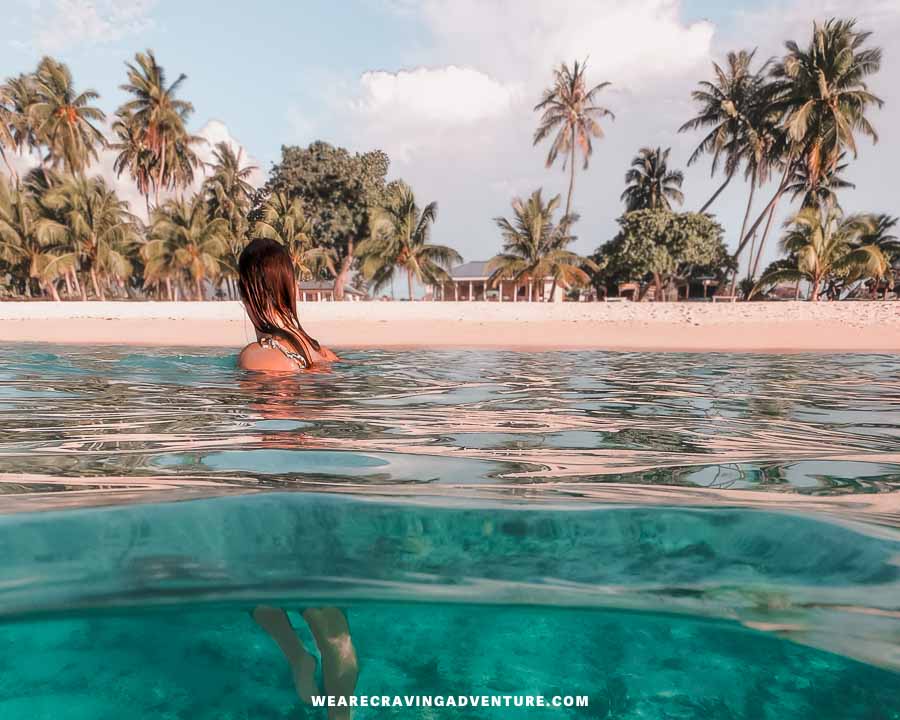
All you need to know about Samoa – The good, the bad, and the ugly
Samoa is a place where piglets roam freely, where everyone smiles and waves as you pass by and where island time is the only time. It is a country full of the most welcoming people, gorgeous palm tree-lined beaches and incredible nature.
At first glance, Samoa is a true tropical paradise. But Samoa is also a country where conservative tribes have a lot of power, the church demands big chunks of the people’s income and there is a serious stray dog problem.
In this blog post, we’ll try to paint you an unclouded picture of Samoa so you can be well informed before you decide to go there yourself.
Where is Samoa?
Samoa is an independent located in the South of the Pacific Ocean in the Western part of Polynesia, just west of American Samoa and North-East of Fiji, or about half way between New Zealand and Hawaii. Samoa is a 4 hour flight from Auckland, New Zealand or a 5.5 hour flight from Sydney, Australia.
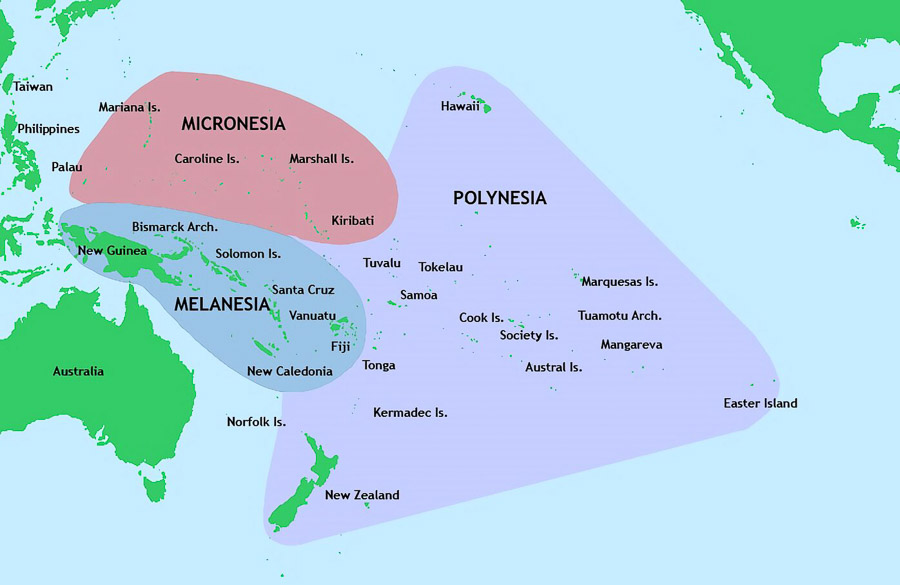
The archipelago of Samoa consist of two big main islands, and several smaller islands for a total land area of 2842 square kilometres.
The first big island is called Upolu. Upolu is where the capital city Apia lies and where most of the population lives. This is also the island that gets most of the tourism as Samoa’s international airport is based here.
The other big island is called Savai’i, and while it is bigger than Upolu, a lot less people live on Savai’i. This island is a lot more untouched and less influenced by tourism. Samoans often refer to Savai’i as the real Samoa.
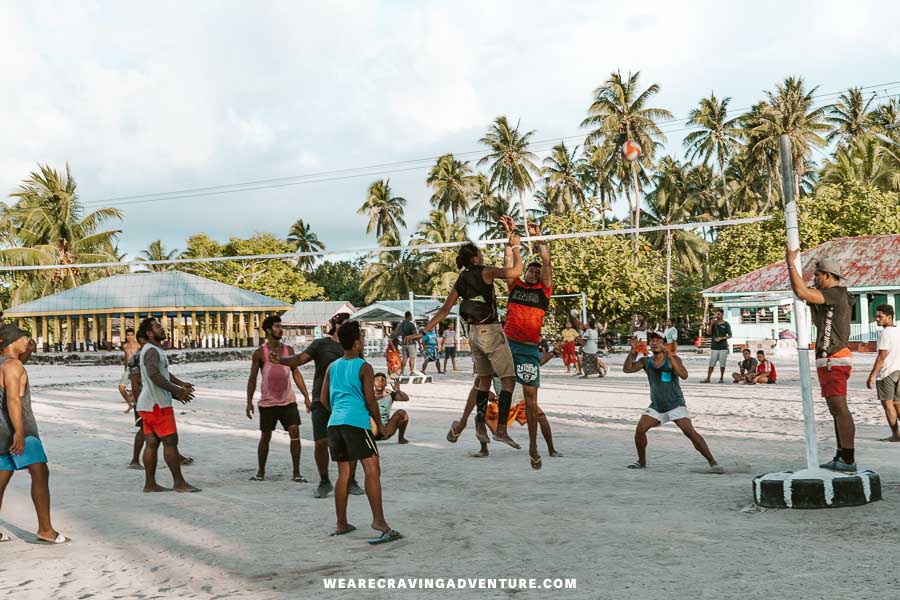
Samoan culture
Samoan culture is of Polynesian heritage and is based on Fa’a Samoa which roughly translates as The Samoan Way. The culture of Samoa is heavily focused on family, community and church.
Samoans have a very strong sense of community. Caring and providing for their extended family or tribe is their number one priority as well as contributing to the church. Samoans are very religious.
Samoans are also very proud people. Samoan people are especially proud of their heritage, culture, and traditions, and they love showing it to others. Especially when you venture outside of the populated areas you’ll find the locals to be very generous and lighthearted.
This all comes together on Fiafia nights. Fiafia means gathering or celebration, and a celebration is exactly what it is. If you get the chance to attend one, don’t hesitate to do so and prepare for an evening full of traditionally cooked food, music, dance, and acrobatic fire shows.
Food is a big part of most cultures, and in Samoa this is no different. Many accommodations are run by local families and will include breakfast and dinner. This means that everyone joins the family and sits around long tables to enjoy a home cooked meal, often including at least some fish, taro (a root that somewhat resembles a potato) and dishes with coconut milk.
On Fiafia nights you might be offered a traditional umu meal. The umu is the samoan version of the famous Polynesian ground oven.


Fale is the Samoan word for ‘house’ and a traditional Samoan fale is a small oval structure with a thatched roof on wooden poles.
A fale has no permanent walls but instead has blinds that you can roll down to provide extra shelter. Sleeping in a fale might sound primitive, but nothing compares to waking up to the soft sound of the waves rolling onto the beach with a light breeze blowing through, to then take a swim in the warm water, not even five steps away from your bed.
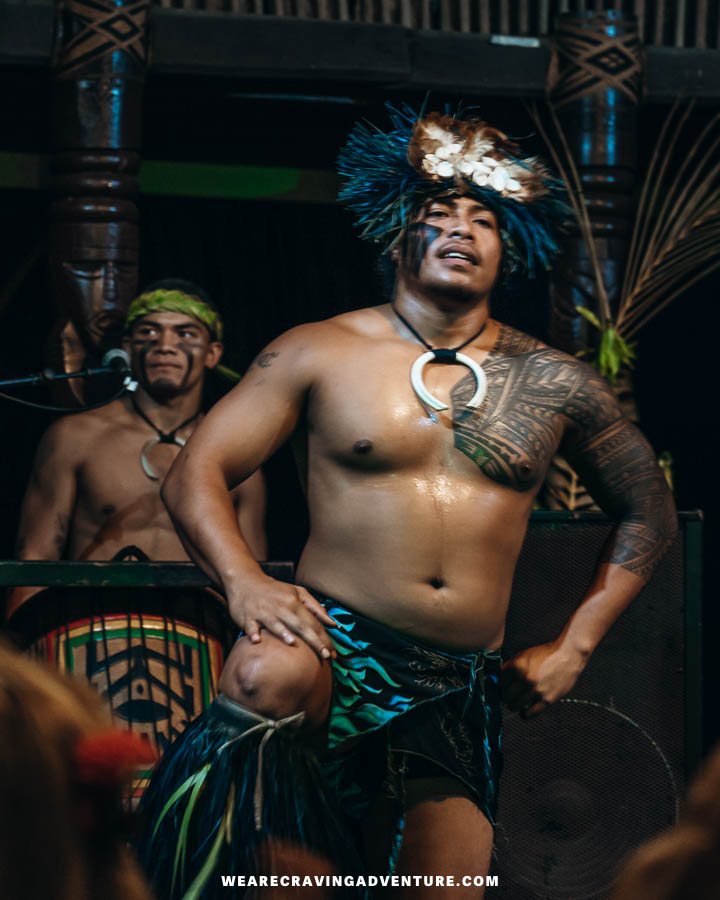
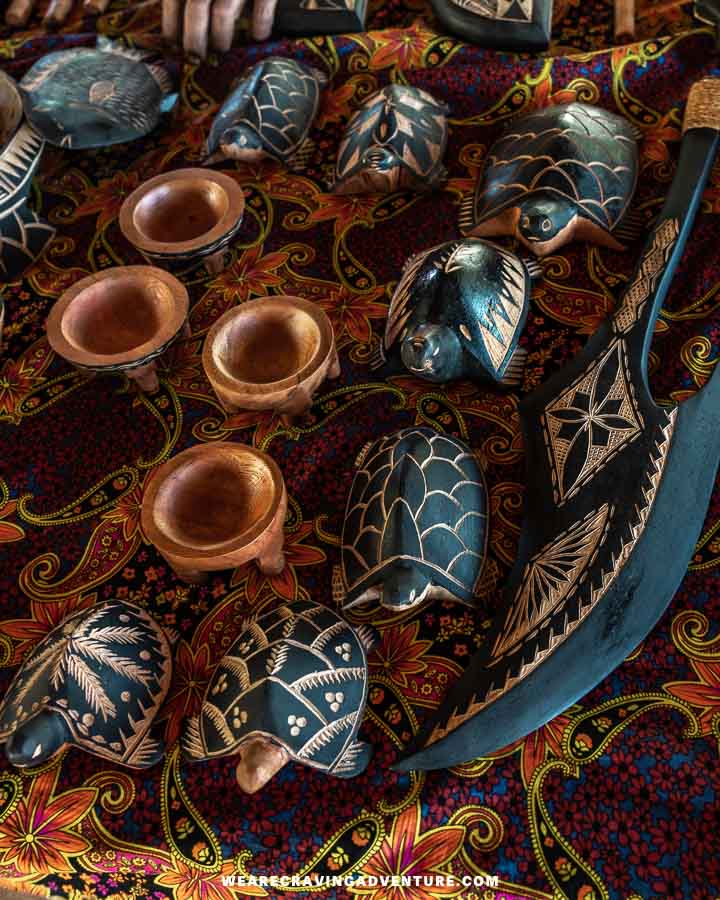
Tattoos are also a part of Samoan culture. Traditionally a Tatau is a symbol of status and a rite of passage from adolescence into adulthood and is done with wooden tools, not a tattoo gun.
There is also a strong emphasis on traditional arts and crafts in Samoa like wood carving, weaving, siapo – the traditional Samoan tapa cloth and tattooing.
The tattoo or Tatau has to be earned. The most honourable tattoo for men is called Pe’a and covers the area from the waist to the knees. The female version of it is called malu and covers the thighs.

The Good
The people of Samoa
When we think about what is good about Samoa, the first thing that comes to mind are the people. Samoans, like most Polynesians, are big, not just in stature but also in the size of their heart.
Samoan people will smile and wave at you as you pass, they will offer help when they see someone in need, they will freely share their food with you, even if they don’t have much, and don’t be surprised if you’re invited into their home.
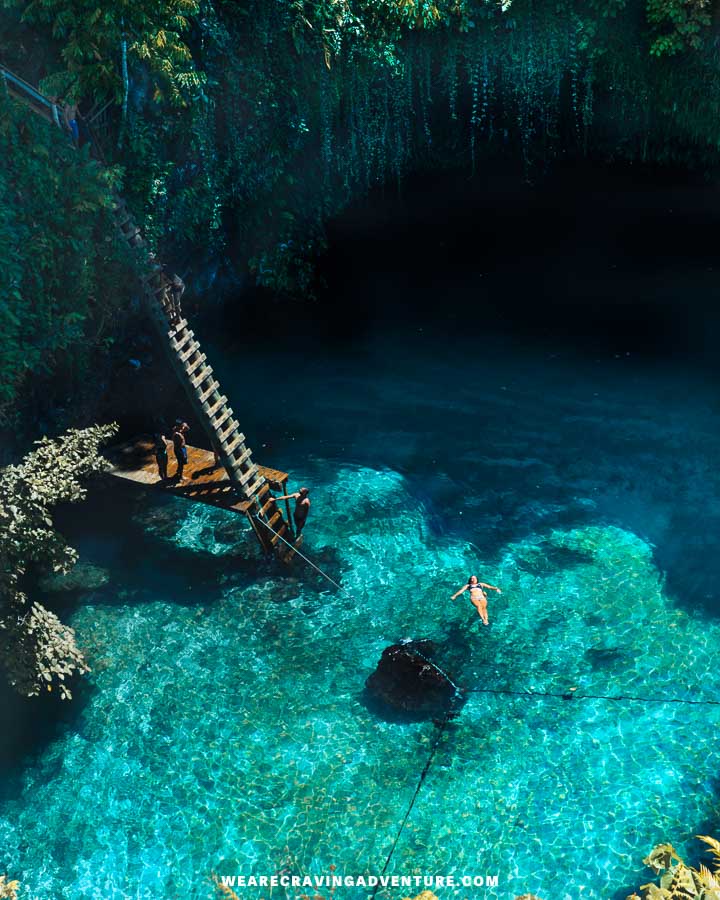

The beauty of Samoa
Samoa is a truly pristine piece of nature full of jaw-dropping sights that are still largely undiscovered by the wider public. Imagine looking out of the airplane window and seeing winding coastlines that go from perfect golden sand beaches to rugged volcanic cliffs and then back to beaches again. This is just a little appetiser of what is Samoa really like.
You might already have seen pictures of the To Sua Ocean Trench, one of the coolest and most unique swimming holes in the world, but this is just one of the many awesome things to put on your Samoa itinerary.
Best things to do in Samoa, 10-day itinerary >> READ NOW
In Samoa you can walk over massive lava fields where water blasts up 30 meters into the air through blowholes (Zi got soaked and Tom couldn’t stop laughing). Or how about overlooking half of Samoa from the top of an active volcano and exploring the underground lava tubes that go underneath?
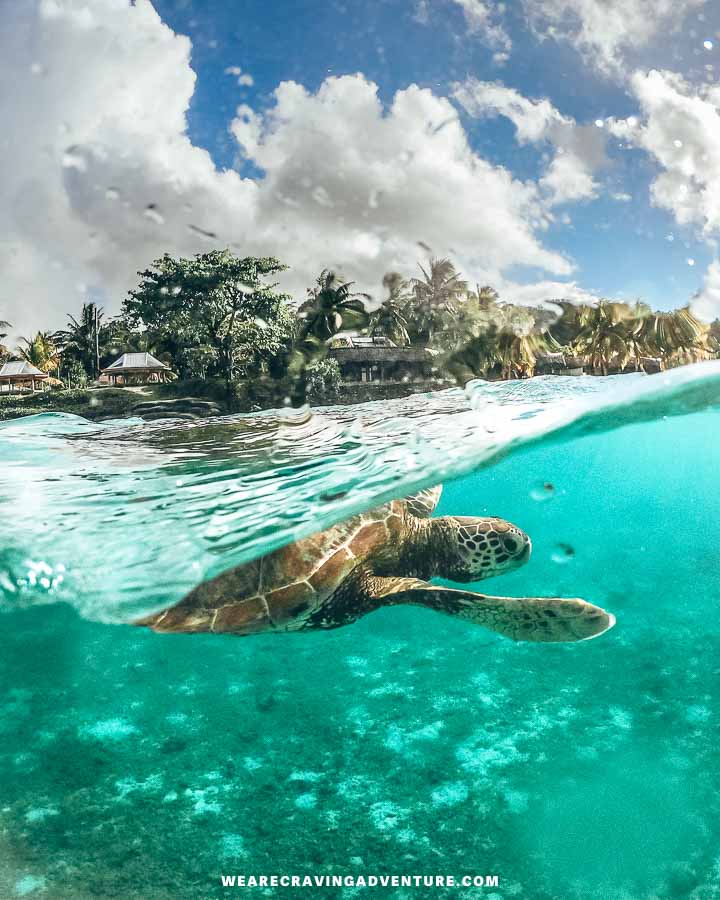
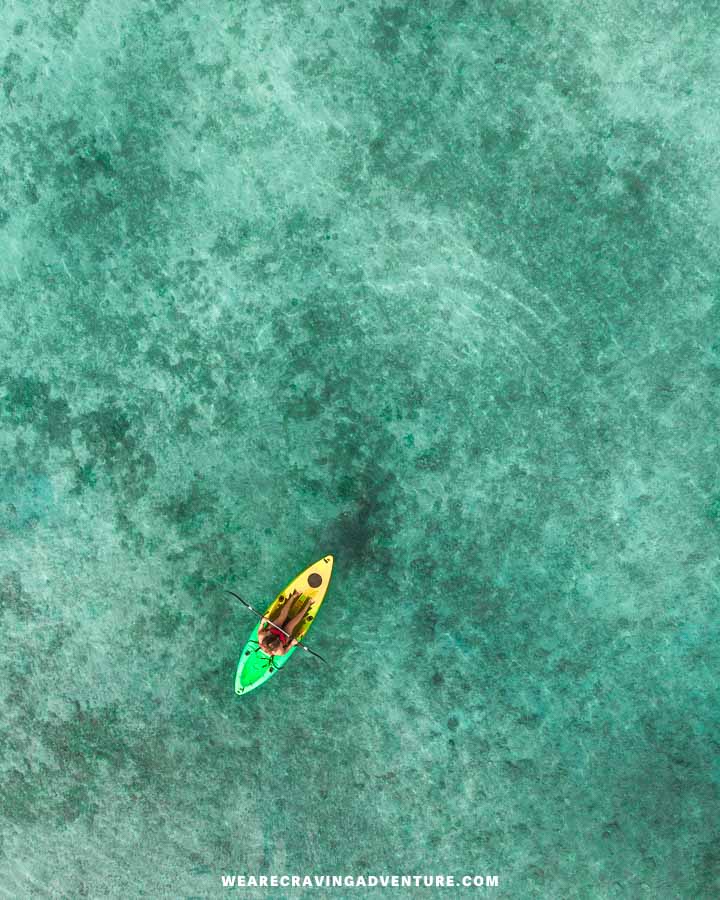
The life filled waters of Samoa
You can also go hiking over luscious green and jungle-covered hills that suddenly make your gaze drop as you see water cascading down a massive waterfall. Swim with wild sea turtles in crystal clear, warm turquoise water that is also brimming with other marine wildlife that made its home in the colourful reefs surrounding the coastline. This isn’t just a fantasy world, this is a reality in Samoa.
Definitely bring your snorkeling gear as Samoa’s underwater world might even be more impressive than what’s above the surface. An underwater world feature that unexpectedly blew our minds was swimming in between hundreds of colourful giant clams the size of armchairs. Or if you fear you might lose a foot or a finger to a giant clam that snaps shut as you swim by, maybe spending the day on a private island sounds better?
Read next: Why you must travel to Samoa ASAP
Around Samoa’s two main islands Upolu and Savai’i, you can find a few small islands that are privately owned and that you can do a day- or overnight trip to. They are said to be the absolute best spots for snorkeling with sea turtles and exotic tropical fish. There is no better way to feel like you’re in a scene out of a tropical paradise movie like The Beach! (the part of the movie before shit hits the fan of course 😉 ).
And if you’re a surfer, don’t forget to bring your surfboard as the south coast offers some epic surf.
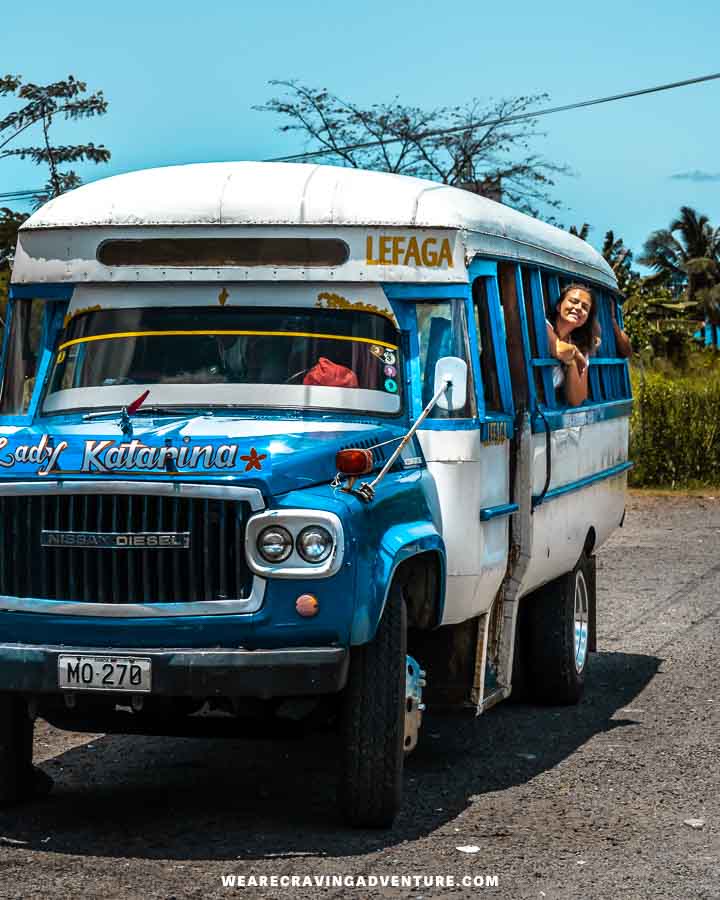

The Bad
So far everything we’ve told you is great, right?! Living in Samoa might sound like a dream but to keep it fair to the rest of the world there are also a few things that aren’t so great about Samoa.
Until 2014, Samoa was considered an underdeveloped country, meaning that is only recently started to develop towards the technical and economical standards that we’re used to in the Western world.
Poor reception & wi-fi
One of the areas where this is very noticeable is in the poor mobile internet reception. Samoa does have a 4G network, but outside of the capital Apia, coverage is poor and reception weak, resulting in slow internet speed or no connection at all. The more expensive accommodations often do have Wi-Fi, but they usually don’t offer it for free and the data bundles that you get are very small.
Food is monotone
Now of course taste is subjective, and we did have some delicious meals as well, but let us explain why we’re still putting the food down as a bad thing.
As we mentioned earlier, Samoans are very traditional people, and this also reflects in their food. Their main ingredients for every meal are fish, taro (a root that somewhat resembles a potato) and coconut milk.
We do highly recommend trying a traditional umu meal (cooked in a ground oven), but after eating taro and dishes with coconut milk a few days in a row you’ll want something else, and other than fried chicken and rice there isn’t much else to choose from. If on top of that you really don’t like coconut milk (like Zi), your choices for food are very limited.
Extreme island time
Lastly, nothing in Samoa runs on time. Life in Samoa is slow and Island time is a real thing in the Pacific, and it feels like the Samoans have completely surrendered to it.
This won’t matter and might even add to the chilled vibe if you’re just there to enjoy a relaxing holiday, but when you actually need to get something done it can get quite bothersome. Imagine trying to get to the airport by bus only to find out that no bus driver cares about the official bus schedule so he shows up 45 minutes late and then takes a massive detour as well.
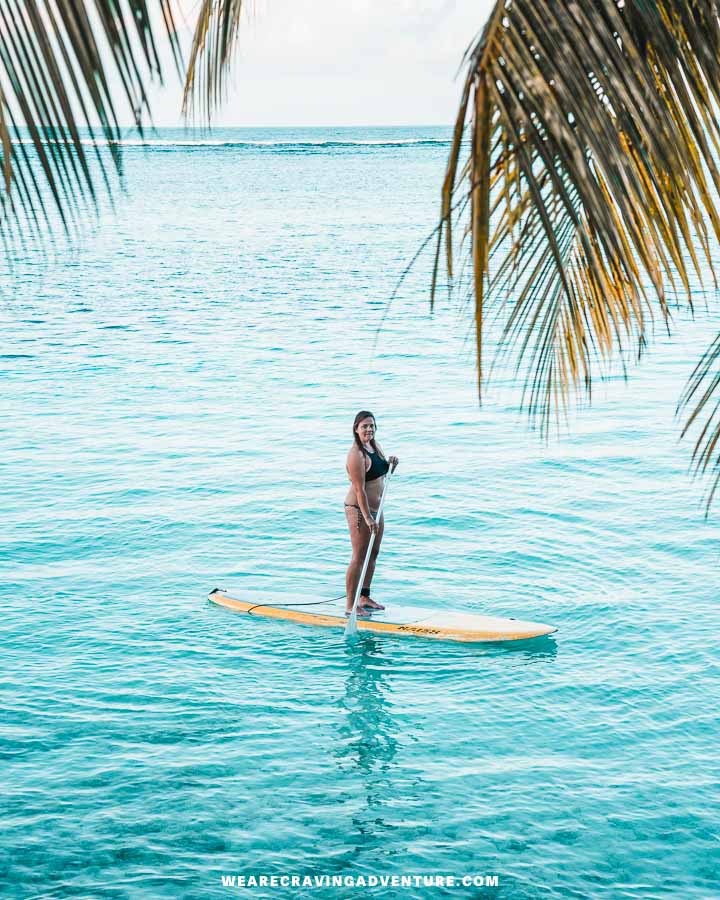
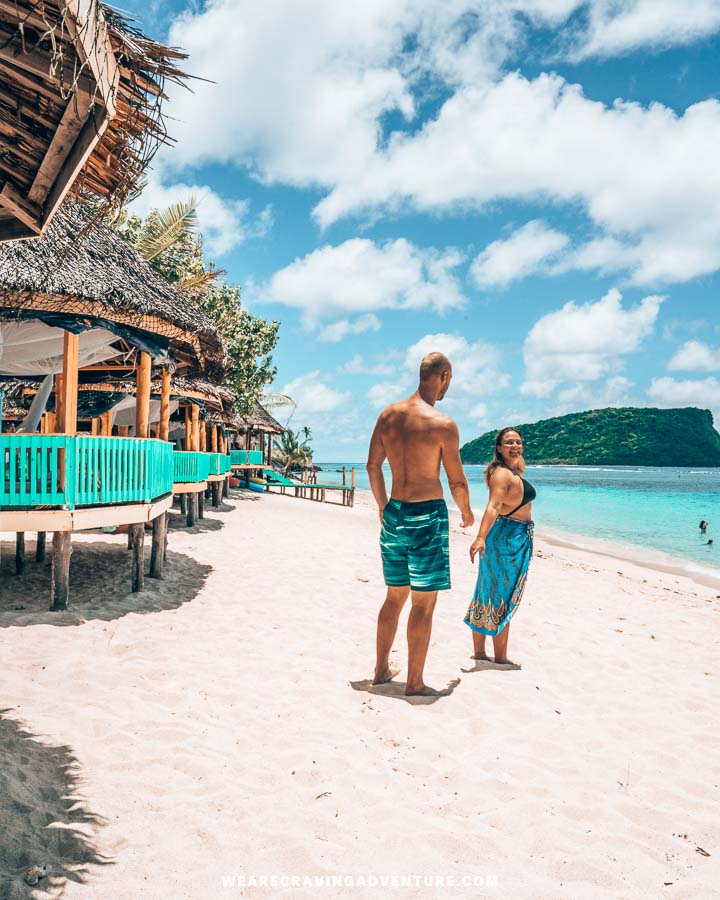
The Ugly
When you’re only in a country for a short period of time, you won’t notice much of what goes on beneath the surface. This is usually a good thing because this way you’ll stay in your happy holiday bubble.
We were in Samoa long enough to uncover some of the uglier traits as well. While we’re not trying to burst your happy holiday bubble we do feel like we need to mention these things so that you have a better understanding of what goes on in the country.
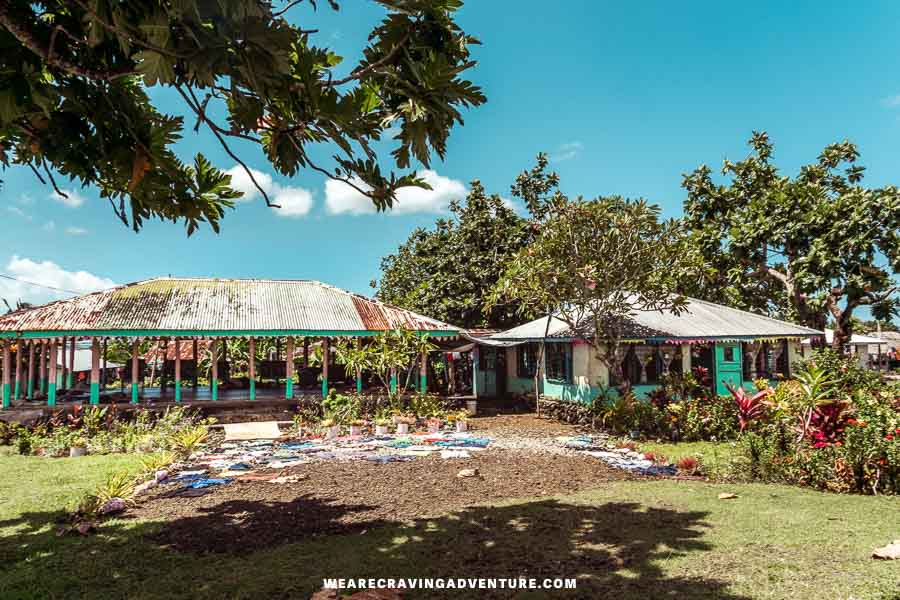
Tribal influence
Tribes play a very important part in Samoan culture and tribal chiefs hold a lot of power over its members and decide on a lot of the major decisions that concern the tribe and their villages.
While this doesn’t apply to every chief, their pride and sometimes conservative traditional beliefs limit their vision to only what is good for themselves in the short term. What is good for the rest of the country or what will help the future hardly gets considered, leading to severe deforestation, exhaustion of the land, overfishing and the destruction of reefs and lagoons.
Some of the most conservative tribes enforce a daily curfew on its members during which the whole village needs to be inside for evening prayers and family time. And while that’s not a bad reason to spend some time at home, breaking the curfew leads to serious fines that most people can’t pay by themselves, meaning that the whole family needs to chip in. If a person can’t pay the fine, even with the help of the family, then that person can get expelled from the village, bringing shame to the whole family.


Church influence
With 98% of the population being Christian, Samoa is a very religious country. Sunday is a holy day and on this day everyone dresses in their Sunday best and goes to church, but the church’s influence reaches much deeper.
Apart from high social pressure to participate in church services, in some villages, the chiefs force their members to be part of the church, with fines or even banishment as a consequence for violation.
When you drive through Samoa you’ll be astounded by the number of churches you’ll see. Even in the smallest and poorest villages consisting of a few small wooden houses, you’ll find a massive church made out of stone. The building and maintenance of these churches, as well as the pastor’s salary and church projects, are financed by the members of the church. Often the contribution that the church asks for totals more than 30% of the family income.
Dogs in Samoa
Sounds cute right? We’re big dog lovers so that’s what we thought when we heard that there are a lot of dogs in Samoa, but the dogs here aren’t the cuddly type of furry friends that you’re hoping to find. To most of the people in Samoa, dogs aren’t seen or treated as pets. Most of the dogs are stray dogs and they are very territorial and can get quite agressive. They usually come out after dark and roam in packs, so be on guard if you go out after dark, especially in the more rural areas.
Measles outbreak in Samoa
When we were in Samoa at the end of 2019 the country was in the grasp of a massive measles outbreak. Due to conservative beliefs, politics, and an accident that caused the death of some babies because a vaccine was wrongly administered, a large portion of the population had no trust in vaccinations, resulting in many kids not being vaccinated for measles.
Even when the epidemic was raging in full force, a state of emergency was declared and the government obligated people to get vaccinated, some people still refused to do so. This lead to thousands of people contracting measles over a period of 4 months, and the disease taking 83 lives.

Samoa FAQ
Is Samoa expensive to travel?
The Pacific Islands have a reputation for being expensive but Samoa didn’t hit our wallets too hard and it’s definitely doable on a budget too. Obviously, their prices can’t compete with South-East Asia, but Samoa is still less expensive than Australia, New Zealand, America, and Western Europe so it is not just for luxury travellers.
When it comes to accommodation in Samoa you can pick anything ranging from little open beach shacks (fales) that have breakfast and dinner included in the price to luxury resorts with spas and boardwalks leading to over-the-water-villas.
Even if you can afford the sheer luxury, we still recommend going for the beach shacks at least once. These beach shacks are called fales and staying in them is a unique and authentically Samoan experience.
Traditional food at fales (which usually act as restaurants too) is cheap at 10-20 tala per meal, a beer is 5-7 tala and soft drinks are in the 2.5-3.5 range. Western food and barista coffee are more costly.
Read next: Where to stay in Samoa – The best accommodation
What language is spoken in Samoa?
There are two official languages in Samoa – English and Samoan. While most educated people and those in customer care positions speak English fluently that is generally not the case in the smaller villages.
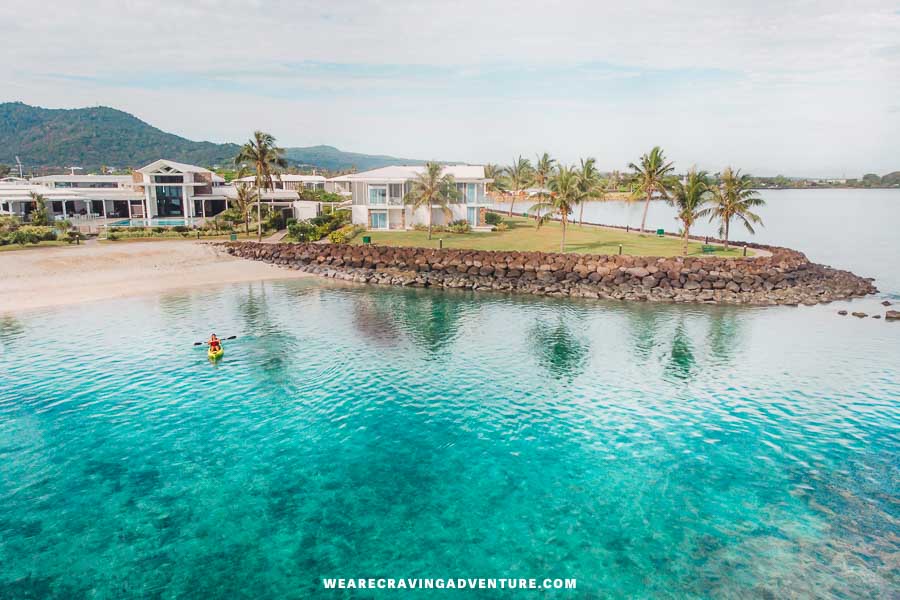
Is Samoa safe to visit?
Samoa is very safe and the crime rate is low. The people are very friendly and kind, and the strong traditions and the communal culture of Samoa keep the crime rate low and the country safe.
What is the best time of year to go to Samoa?
Samoa has two distinct seasons, dry and wet. You’ll want to visit Samoa in the dry season which runs May to mid November, with high season being July – September.
The best time to visit is at the very beginning (May to mid-June) or very end (October to mid-November) of the dry season.

How many days do you need in Samoa?
You need 7 to 10 days to visit both islands in Samoa. This will give you enough time to visit the main attractions as well as spend some time on the beach.
Read next: The best Samoa itinerary – 10 days in paradise
Does it get cold in Samoa?
It doesn’t really get cold in Samoa. Because of the tropical climate, Samoa is hot and humid year round.
Does Samoa have Internet?
Samoa does have internet but wi-fi is usually on the slow and expensive side. The mobile reception and data access to the internet are very patchy too.
Is Samoan food spicy?
No, Samoan food is not spicy.
Is Samoa worth it?
Most definitely! We loved every second of our stay in Samoa and would go back in a heartbeat. Samoa is a true jewel of the Pacific and you can’t go wrong here for a unique, tropical holiday. We’re sure that if you choose to go to Samoa, it will become your new favourite travel destination!
Have you been to Samoa? Would you like to go? Drop your questions and thoughts in the comments bellow!
KNOW SOMEONE WHO’D LOVE TO VISIT SAMOA?
Share this with them!

Religions or more traditional beliefs should never have a say in the way people live. Most countries free themselves from the influence of religion, and I believe it’s a good thing!
We totally agree with you on that! Religion should always be a choice and people shouldn’t be oppressed into associating themselves with a religion, or any group or belief for that matter.
Yeah you’re right. I think it was the way of keeping people from committing crimes that’s why they forced people to go to church.
I’m telling you, growing up in Samoa, it was the most beautiful thing ever, not to be able to see people walking around. There were two days of worship in Samoan then. Sunday and Saturday. Everyone respected that cos punishment was a serious business 😁. Too serious.
The evening worship like they mentioned, some villages do it, some don’t. In my village, most people live near the ocean it’s called tai, we lived near the main road going around Savai’i like a little far away from the ocean and it’s called uta. So tai, that rule was strict for them they blow the horn (shell) and everyone except for the young men guarding should be in their houses worshiping. Uta, was not, but we do worship every evening. It was a good thing for us Samoans growing up, now we’re older, and its something that stays in us. So matter where we live in this world, morning and evening worship at home is a daily thing for us.
It’s definitely an interesting destination. Great tips.
Thank you! It is such an incredible country!
WOW looks so stunning! really informative will definitely remember this for when we visit!
Thank you so much Emma! Samoa is such a hidden gem
Samoa is on my bucket list so this post is really helpful. Your photos are stunning. I totally remember hearing about the measles situation.
That’s awesome Disha! Samoa often gets overlooked when it comes to holiday destinations in the Pacific, but it totally exceeded our expectations!
I’m glad you covered good and bad, it’s too easy to sometimes just focus on what you loved. Speaking of things I love: taro. I got used to it in Asia and absolutely love it, so I might do ok with the food here.
Glad you agree Emma! And if you like taro you’ll love the food in Samoa haha!
I would definitely love to go here someday! This is incredibly informative. It’s always good to share more than just what’s perfect about a place ? thanks for the post!
Thank you Jen! We truly love Samoa, but feel like it is better to paint a realistic picture so people really know what to expect, than to just blow up all the good aspects, neglect the downsides and have people come back from their trip dissappointed.
This is so interesting! I love your balanced approach – makes a lovely change to see somebody being honest about the downsides of a place as well as the upsides!
Thank you Dani! Glad you like it! We feel it is important to share the whole picture, not just the good stuff 🙂
As a Samoan. When the Missionaries came we embraced them and took Christianity, Lotu Patipati, Methodist, Catholic as a way for a better life. So that is why we are so religious.
How positive of you to find Samoa nice & friendly! Of course they’re nice & sweet to papalagis (white people), but to their own, NOT. Women are subjugated & beaten; children are treated as servants & beaten; men are at war w/ each other & beaten. Suicide is preferred to living in their tyrannical families of servitude, Christian fundamentalism & incest. Their culture is based on war, violence, competition, mockery, fear & sexual dominance. Yes, have fun in Samoa, palagis! It’s not in your blood to live in despair & accept it (like Samoans do). Fa soifua!
my husband and I would love to visit it sounds like paradise.
There’s always that one kaepusi. Kalofa e. As a Samoan, I’m proud of my culture. Not sure where you come from and what nationality are you and where you get your info from but let me say this. You are right. Women were beaten by their husbands in Samoa. In America, I see other people do the same to their wives or vise versa. Not all Samoan men are abusers, there were tons (like my father) who was so loving. I married a Samoan man and he is so gentle, so loving, so humble, he never beat me.
Children being abused. I kinda agree on that part because of the way some parents beat their children. But our people were raised that way. Two things a Samoan child carries around wherever she/he goes and those things are the reasons why every Samoan parent is on their children’s butt. First, your name, second, your family’s name. No one wants their name to be known for something stupid, that’s what our parents taught us. Humiliation is not on any Samoan parents list. Also, If one person commit a crime, the whole family will pay. Most Samoans I know including myself are grateful and thankful to our parents for the way they raised us. Because if they didn’t teach us from wrong to right, we would’ve been out here committing crimes, disrespect other. Respectful is our first lesson. Respect our elders, between sisters&brothers, men and women and other people. So if beating kids is your meaning of abuse, the bible says. Discipline your children they won’t die if you spank them. I’m grateful for the beating and disciplining. I didn’t like it back then but now I’m older, I’m glad they did what they did. Forever grateful for my parents. Otherwise I’m in prison or probably dead.
No one is perfect under the sun, suicide is common in every nation, every culture, every nationality. In Samoa, yes it happen. No matter how many times a Samoan person goes to church, that will never stop him/her from committing suicide. Its all about self control. If you have the Spirit of God to control you and if you’re able to control your emotions and won’t give two shykes to what anyone thinks or say, then you can win that battle.
I really don’t know where you came from with our culture based on war. Our culture is our culture. I actually love my culture. It based on respect, showing love and kindness. Sometimes too much love and kindness showing. Every nation went to war with other nations, even people fight left and right. That’s how the world is because we’re living in a sinful world. If you want to find a country or place that is without war or fights, maybe Mars is perfect for you.
Ps. If you’re Samoan, I pray that God will help you with whatever you’re going thru. If you’re not, I pray God will help you with whatever hatred you have in your heart for my people. And if you’re not and you experienced something in my country, I. Apologize and hopefully you will get to meet some other Samoans besides the people you met. But if you are and you feel that way about Samoans, It’s time to heal, not for anyone but for yourself. Hatred is from the devil
Thanks, a proud Samoan.
How do you know?
Hi,
I wish to relocate to samoa to work and live there. Pls I will appreciate any vital advice on how to go about it. Thanks.
Hi Sanni, that’s great, I’m sure you’ll love Samoa! Perhaps you can get in touch with http://www.samoa.travel for more info on relocating
I will love to visit Samoa with my family
We are going to Samoa in December later this year: cannot wait to visit. Any other destination tips?